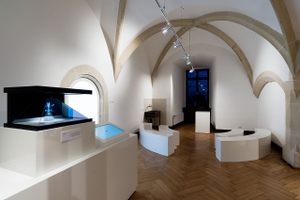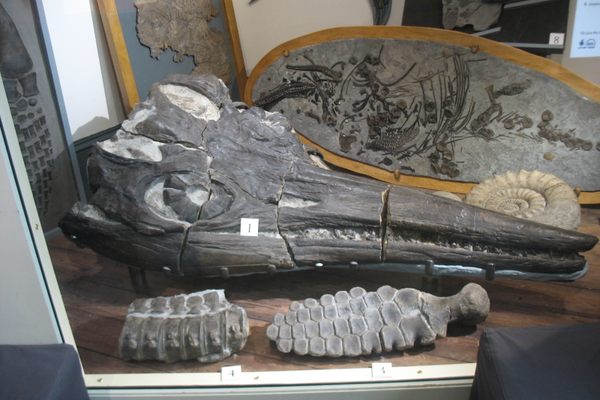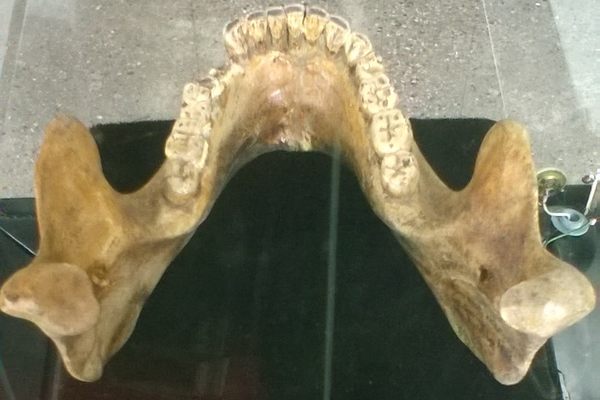About
Founded in the early 18th century, the Paleontological Collection of the University of Tübingen is one of the world’s oldest and most diverse collections of fossil species. The exhibition is of outstanding value since it hosts a large number of fossil collections from different species and epochs, all showcased in elegant antique display cabinets originally installed in 1903.
The exhibit starts in a beautiful hall dedicated to the extinct ice age fauna of the Württemberg region, a unique and outstandingly broad collection of placodontia (“tablet teeth reptiles”), a group of Triassic extinct species. The museum also hosts the world's most celebrated collection of mosasaurs and therapsids, which are theorized as the “missing link” in evolution between reptiles and mammals.
From the beginning, the collection served educational purposes and was continuously supplied by the university's excavation excursions. Thanks to the Posidonia Shale, a geological formation that is common in the Swabia region of southern Germany, the area has always been rich with incredibly well-preserved fossils. This is especially true of the excavation site of Holzmaden, one of the first places where geologists from Tübingen University started their investigations of Jurassic marine life. The plateosaurs, plesiosaurs, ichthyosaurs, and ammonites found in Swabia region over the last 200 years are on display in the university museum alongside extremely rare, fossilized sea-lilies (crinoids) that are some 190 million years old.
Even though the exhibition is kept in the anachronistic style of a classical naturalienkabinett, this shouldn't overshadow the fact that the collection is still active and even growing. The objects are still part of scientific research and used for teaching, and the exhibition continues to grow as Tübingen’s paleontologists take part in excavation journeys. Currently, a group of scientists is working in Bulgaria supplying the institution with new fascinating fossil bones.
Related Tags
Know Before You Go
The collection is located inside the historical Geosciences Institute of the University of Tübingen. Entry is free of charge and the exhibition can be accessed from Monday through Friday from 9 a.m. to 5 p.m.
Community Contributors
Added By
Published
March 13, 2019






























